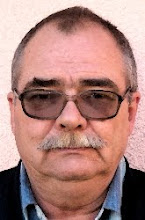Lockyer, Joseph Norman (1836-1920), British astronomer and physicist, born in Rugby, England; pioneer in application of spectroscope to sun and stars; explained sunspots; between 1870 and 1905 conducted eight British expeditions for observing total solar eclipses ('The Sun's Place in Nature'; 'Recent and Coming Eclipses'; 'The Chemistry of the Sun'; 'Inorganic Evolution').
Before its presence was known on Earth, helium was identified in the sun. In 1868 a British astronomer, Joseph Norman Lockyer, used spectral analysis to isolate helium in the sun's spectrum. Thus helium got its name from the Greek word helios, meaning "sun."
Helium is a colourless, odourless, gaseous element. It is chemically inert; hence it will not burn or react with other materials. Helium has the lowest boiling point of any element. Next to hydrogen, it is the lightest known gas and the second most abundant element in the universe. It is found in great abundance in the stars, where it is synthesized by nuclear fusion of hydrogen. In the Earth's atmosphere, helium is present only in about 1 part per 186,000 because the Earth's gravity is not strong enough to prevent its gradual escape into space. The helium present in the Earth's atmosphere has been generated by the radioactive decay of heavy substances.
Decompression sickness (or bends, or caisson disease), physiological problem associated with underwater diving; results from differences in underwater pressure and air pressure.
Most of the world's helium occurs in natural-gas deposits in the United States. Smaller supplies have been discovered in Canada, South Africa, the Sahara Desert, and elsewhere. Its lightness and non flammability make helium ideal for use in the inflation of lighter-than-air craft. Because helium's boiling point is close to absolute zero, it is widely used in low-temperature research. It is also vital to the study of superconductivity.
Helium is used in arc welding. Deep-sea divers breathe a helium-oxygen mixture to prevent decompression sickness, also called the bends.



